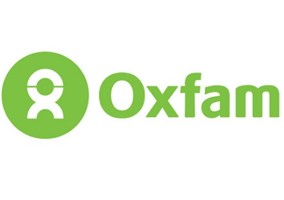The whole aid sector is in the same boat as Oxfam over safeguarding “and that boat is sinking”, according to an international human rights lawyer.
Speaking at a meeting of the Haiti All Party Parliamentary Group (APPG) in Parliament yesterday, Brian Concannon, executive director of the Institute for Justice and Democracy in Haiti, said the Oxfam safeguarding scandal had engulfed the entire international aid sector. And he compared the aid sector in the wake of these scandals to a sinking ship.
“Because of these scandals the whole sector is now in this boat, and it's sinking” said Concannon. “If they don’t fix the boat, then it will sink.”
He presented a summary of recommendations from a soon-to-be published report from in full by the Institute of Justice and Democracy in Haiti. He said these recommendations would help the “move the conversation forward”.
This included proposing a “sector-wide inquiry” because “everyone else” in the international aid sector “needs to step up, because if they aren't already, they will be suffering the same consequences as Oxfam until the problem is corrected. It’s an opportunity for the entire humanitarian aid sector to step up and do a review of accountability structures and procedures that are already in place”.
He also said the entire sector needs to put in place reporting and accountability structures “for all external and internal operations”. He said this would be “extremely difficult, but was extremely necessary”.
An independent, cross-sector review
Jennifer Robinson from Doughty Street International law firm, welcomed Oxfam’s announcement of an internal commission into its safeguarding issues, but joined Concannon in calling on Oxfam to consent to an “independent, cross-sector review driven by the charity sector, and the governments of the UK and Haiti”.
Robinson said that a cross sector review would have “greater credibility” with the public; would “better protect Oxfam’s reputation and the reputation of other aid organisations” and would also be far more “cost efficient” than if each and every aid organisation conducted its own, internal review.
Concannon called Oxfam the “visible tip of the iceberg” in terms of abuse in international aid. This gave the organisation “an opportunity to play a historical role” in helping to rebuild not only the trust and confidence of the donating public, but also of the people of Haiti, by helping lead on an independent review.
“I would encourage Oxfam to extend its inquiry to the broader, sector wide approach. I understand why that is extremely unwelcome. What Oxfam has already committed to do is substantial but I would encourage them nevertheless as Oxfam has a unique, opportunity to play a real historic role in structural change for the sector.
“Being the visible tip of the iceberg gives the charity potential for leadership of the rest of the iceberg. The historical position Oxfam has of already being a leader in making the international aid sector more accountable. In many ways, Oxfam being the international poster boy for this scandal is ironic given that Oxfam has been a leader in promoting accountability.”
He also said that, while Oxfam’s proposed internal commission would “present short-term advantages” for Oxfam, public trust has now been damaged to the point where anything other than the most transparent review process would present “more long-term disadvantages”.
Oxfam does not have all the answers
Also appearing before the APPG, Nick Roseveare, director of international programmes at Oxfam, said that in terms of an independent review, Oxfam needed to be “very careful of how it positioned itself, not to protect ourselves but because of what’s right. It would be wrong for the organisation to suggest that it is proper for it to lead the sector in finding solutions to this at the moment”.
He said the sector “didn’t have all the answers” yet, and said it would be a “joint process of discovery” for the wider sector to find solutions to what seems to be a systemic problem.
Roseveare cited figures recently published by the Charity Commission which said that 26 international aid organisations have now reported a total of 80 separate, serious safeguarding incidents.
“As unenviable as being the tip of the iceberg is, it’s very important that the rest of the iceberg is exposed,” he said. “There’s a great deal of the iceberg left to be uncovered.” He did say however that Concannon and Robinson were “absolutely right that there is a need for a cross-sectoral look at this”.
Roseveare confirmed that Oxfam had lost “a number” of its regular supporters, and said it was very “grievous and sad” for the charity to have been “the trigger” for a fall in public trust and confidence in the wider aid sector.
“It’s not about raising money for us, but if the public’s faith in the aid sector has been damaged because of this, then it’s our responsibility to repair it,” said Roseveare. “Oxfam knows that it’s not alone in this, but that it should be the trigger of these things is very troubling indeed”.
He said the internal review of the organisation, co-chaired by Zainab Bangura, former under-secretary general of the United Nations, and Katherine Sierra, former vice president of the World Bank, would publish a report "probably within the next 12-months" and "may well visit Haiti" at some point in its investigations.
|
Related Articles












